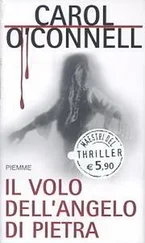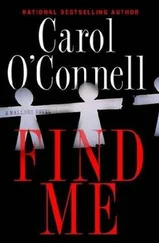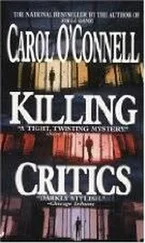Why did you come back, Nedda?
Uncle James had promised them, over and over, that their sister would never return to Winter House.
He turned toward the passenger seat to look at his sister in her own neighboring galaxy on the other side of the car. Her face was bathed in dim light from the dashboard.
„Cleo? You don’t remember very much, do you? When we came home from the park that day… and found them all dead.“
„No.“ She shivered slightly, as if awakening and shaking off dreams. „No, I don’t.“
That was not surprising. His sister had been only five years old when the two of them had come home to find their parents’ bodies sprawled on the stairs. And the dead housekeeper – what was her name?
No matter. He could not remember the nanny’s name either. Oh, but the others, his brothers and sisters. He saw them now, white and still.
His parents were his most vivid memory. What a picture for the family album: little Cleo clinging to their dead mother, the corpse warm to the touch, and by that warmth, still giving comfort to one of her children – but not to Lionel. While standing on the stairs, only inches from his father’s body, he had been a zillion miles distant from that scene, wishing himself to the moon and listening in on the world from a great distance.
Listening to a memory now – truly a long way off – he could still hear Cleo’s sad little conversation with the police on the telephone, numbering and naming the dead, then ending by asking them so innocently, „Are you coming?“
Lionel looked at his mask of a face in the rearview mirror, then glanced at his sister’s mask before turning back to stare at the windshield.
Alone again.
CHARLES BUTLER’S SUITE OF OFFICES WAS EQUIPPED WITH AN ultramodern kitchen, and Mallory was always upgrading the technology. Most of the appliances had secret lives of their own and functions that he could only guess at, but the one that he resented most was the high-tech coffeemaker. As a confirmed Luddite, he preferred his brew untouched by computer chips.
This morning he ground his own beans, as usual, percolated the coffee over an old-fashioned gas flame, then carried the cup and saucer across the hall to a door that bore the gold letters of Buder and Company on frosted glass. Once it had said Mallory and Butler, but again, the police department had frowned upon this flagrant breach of policy against using investigative skills in the private sector. The absence of her name on the door was at least an attempt at discretion.
Charles took a deep breath while fitting his key in the lock. He would only have six seconds to disable the burglar alarm, all the time that Mallory’s programming would allow him, and he was not likely to forget that – ever. The deafening siren had once jangled his brain and entirely cured his absentmindedness.
But the door was not locked.
Well, this was not a promising start to any day, not in New York City. Only two other people had keys: his cleaning woman, Mrs. Ortega, never came this early, and his business partner never came this late. He glanced at his wristwatch. Right about now, Mallory would be entering the SoHo police station, her only legally sanctioned workplace.
He pushed open the door and found that the reception area was in good order, and nothing appeared to be missing. The antique furniture in this room was costly, but burglars would probably prefer more portable items – like Mallory’s wildly expensive electronics.
He walked down a narrow hallway to the back rooms, moving at the leisurely pace of a man who is heavily insured. Mallory’s private office was dimly lit by the glow of a computer projection on a large pull-down screen. He stared at the wall-size portrait of a redheaded child standing nine feet tall. A smaller scale of this same picture appeared on three computer monitors, but for some reason, the detective felt the need to see this little girl blown up. So absorbed was Mallory that she had not noticed him yet.
Charles watched one painted image blend into another. In this new portrait, the red-haired girl wore the uniform of a private school, and she posed with her legs draped over the upholstered arms of a chair. Just a trace of white underpants was showing. Computer clicks and whirs announced the next painting, and this one was memorable. This was the jewel of the Quentin Winter collection, the only major work of art by an otherwise minor painter. This was the artist’s child, and she was naked. There was only a gentle swelling where breasts would be one day. More paintings clicked by in quick succession, and he felt like a voyeur watching Nedda Winter go through all the stages of her prepubescent life, nine feet tall on Mallory’s wall, a young giant.
„Do you see what I see?“ asked Mallory, without turning around.
So much for being able to walk up behind her unnoticed. After the next click, Mallory was once again bathed in the light of the famous Red Winter painting. He well understood her question. „Well, the artist wouldn’t be the first to paint his own child au nature!.“
„That bastard singled her out,“ said Mallory. „Nedda was one of nine kids. He painted a lot of nude women, but she was the only child.“
„You believe he molested his daughter based on nothing more than a painting?“
„I’m ninety percent sure.“
Charles did not care for the sound of that. He would prefer not to go to certain corners of Mallory’s early life, undoubtedly the source of her expertise. Turning to face the projection on the wall, he recalled a wallet photo that his old friend Louis Markowitz had carried, a small portrait of his foster child. At the age of the young girl on the wall, Kathy Mallory had possessed those same wary eyes. Her early days on the streets had been hard and hardening. Nedda Winter, however, had been a child of wealth and luxury. Not at all the same case, and this might argue for a troubled home life in Winter House.
And molestation?
His mind now poisoned, he had to wonder, against his will, if the title word red denoted the color of young Nedda’s hair or her rape.
Mallory switched on the overhead fluorescent tubes, and the room became entirely too bright. Light bounced off glass monitors, gleaming metal furnishings and electronic components. The carpet was an institutional gray, no doubt selected to disguise the wood floors as cement. She crossed the room, heading toward the steel blinds that hid the graceful lines of arched windows. Her computers were dead for the moment. When they were powered up, they hummed in communication with one another, and she with them. When the machines were alive, the psychological temperature of her private office was always ten degrees below a normal person’s comfort zone.
The viewing screen was raised with the press of a remote-control button and sent rolling back up into its metal cylinder near the ceiling molding. A cork bulletin board that spanned the entire wall was now exposed with all its papers pinned up at perfect right angles, and each sheet was equidistant from the next. Mallory’s pushpin style had machine precision.
If her lovely face was incongruous in these environs, what lay beneath was not. And what truly moved him, what touched him most, was that she could have no idea that this room exposed her personal quirks, her own clicks and whirs, all the most chilling departures from her fellow creatures. This office was Mallory naked for all to see – so vulnerable.
And what did she see when she looked at him? Was it something sad and pathetic? Or was he comical in her eyes?
They could never tell one another the truth. They were friends.
„All right,“ said Mallory. „Let’s say Quentin Winter molested his daughter. Could you make a case for the girl as a spree killer?“
Читать дальше












